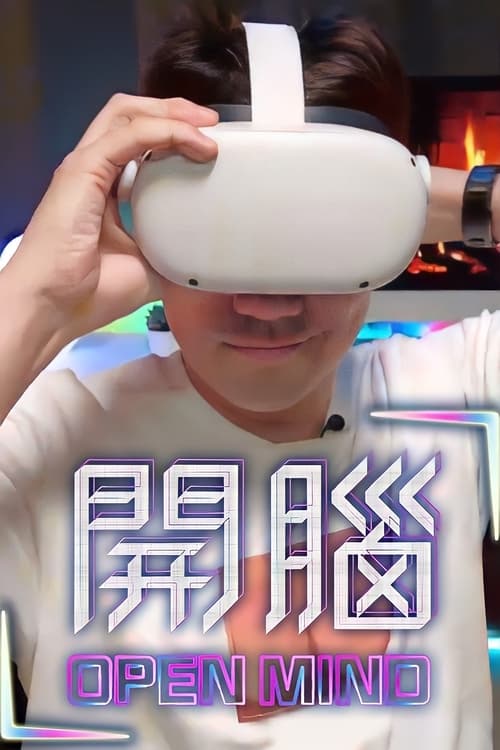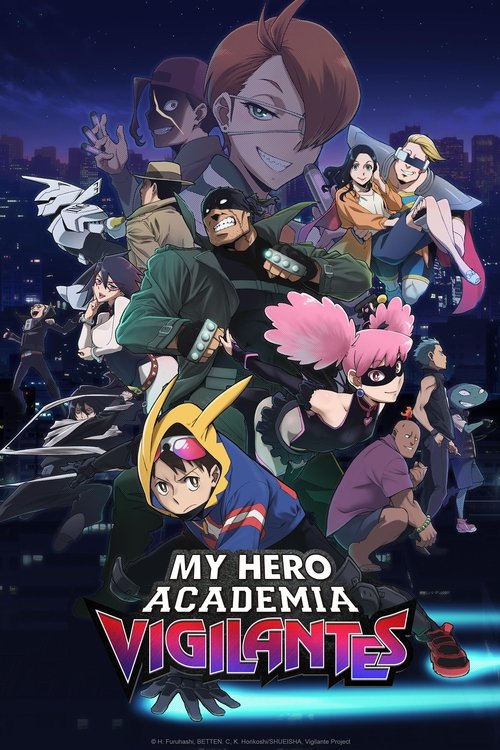
Ask Your Own Question
What is the plot?
In Episode 11 of "No Poverty Land," the episode opens with a tense atmosphere in the community center where the residents gather for a crucial meeting. The camera pans across the worried faces of the townspeople, highlighting their anxiety about the impending eviction notices that have been issued to many families. The protagonist, Maya, stands at the front, her brow furrowed with determination as she prepares to address the crowd. She feels a deep sense of responsibility to protect her neighbors and is motivated by her own family's struggles with poverty.
As the meeting begins, Maya outlines a plan to organize a protest against the eviction notices. She passionately speaks about the importance of standing together and fighting for their rights. The crowd responds with mixed emotions; some are inspired by her words, while others express doubt about the effectiveness of such actions. Among the crowd, her friend and ally, Jamal, encourages her to remain hopeful, reminding her of the strength they have when united. Maya's internal conflict is palpable as she grapples with the fear of failure but ultimately decides to move forward with the protest.
The scene shifts to Maya and Jamal strategizing in a dimly lit room, surrounded by posters and flyers for the protest. They discuss logistics, including how to gather more supporters and the best way to approach local media. Maya's determination grows as she envisions the impact their protest could have. However, she also feels the weight of the potential consequences, knowing that the authorities may retaliate. Jamal reassures her, emphasizing that they must take a stand for their community.
The day of the protest arrives, and the atmosphere is charged with energy. Residents gather outside the town hall, holding signs that read "No Evictions!" and "We Deserve Better!" Maya stands at the forefront, her heart racing with a mix of fear and excitement. As they chant slogans, the local news crew arrives, capturing the moment. Maya feels a surge of hope as she sees the community rallying together, but she is also acutely aware of the risks involved.
As the protest escalates, tensions rise when local law enforcement arrives to disperse the crowd. The officers, clad in riot gear, demand that the protesters leave the area. Maya steps forward, her voice steady as she attempts to negotiate with the police, advocating for their right to protest peacefully. However, the situation quickly deteriorates when one officer shoves a protester, igniting chaos. Maya's heart races as she witnesses the crowd's fear turn into anger, and she realizes that the protest could spiral out of control.
In the ensuing confrontation, protesters clash with the police. Maya tries to maintain order, urging her fellow residents to stay calm, but the atmosphere becomes increasingly volatile. She watches in horror as some protesters begin to push back against the officers. Jamal, sensing the danger, grabs Maya's arm and pulls her away from the fray, urging her to seek safety. Maya feels torn between her desire to stand with her community and the instinct to protect herself.
As the chaos unfolds, Maya spots a young child who has become separated from their parent amidst the turmoil. Driven by her protective instincts, she rushes into the crowd, navigating through the chaos to reach the child. Her heart pounds as she hears shouts and the sound of sirens approaching. She finally reaches the child, kneeling down to reassure them, and together they make their way back to safety, showcasing Maya's deep compassion and commitment to her community.
Once the protest is finally dispersed, Maya and Jamal regroup with the remaining residents at the community center. The mood is somber as they process the events of the day. Maya feels a mix of pride and despair; while they made their voices heard, the confrontation with the police has left many feeling defeated. Jamal encourages her to focus on the progress they made in raising awareness, but Maya struggles with the fear that their efforts may not be enough.
The episode concludes with Maya standing alone outside the community center, looking up at the stars. She reflects on the day's events, feeling a renewed sense of purpose despite the challenges ahead. The camera lingers on her face, capturing the determination in her eyes as she vows to continue fighting for her community, setting the stage for the ongoing struggle against poverty and injustice.
What is the ending?
In the ending of "No Poverty Land," Season 1, Episode 11, the main characters confront their personal struggles and the societal issues they have been grappling with throughout the season. The episode culminates in a community gathering where they share their experiences and hopes for a better future. Each character finds a sense of resolution, with some choosing to take action in their lives while others find solace in the support of their community.
As the episode unfolds, the scene opens in a dimly lit community center, where the air is thick with anticipation. The camera pans across the faces of the townspeople, revealing a mix of anxiety and hope. The main character, Maya, stands at the front, her hands trembling slightly as she prepares to speak. She has been a driving force throughout the season, advocating for change and unity among the residents. Her internal struggle with self-doubt is palpable, but she steels herself, knowing that this moment is crucial for her community.
Maya begins to share her story, recounting the hardships she and her family have faced due to poverty. Her voice quivers with emotion as she describes the nights spent worrying about how to make ends meet. The audience listens intently, some nodding in understanding, while others wipe away tears. This moment serves as a cathartic release for Maya, who has often felt isolated in her struggles.
Next, the scene shifts to Marcus, a young man who has been a close ally to Maya. He stands up, inspired by her courage. He shares his own journey, detailing the challenges he faced as a single father trying to provide for his daughter. His vulnerability resonates with the crowd, and a sense of camaraderie begins to build. The camera captures the supportive expressions of the audience, highlighting the theme of community strength.
As the gathering continues, other characters, such as Elena, an elderly woman who has lived in the town for decades, also take the floor. She speaks about the importance of resilience and the need for the younger generation to carry the torch of hope. Her words are filled with wisdom, and the scene is interspersed with flashbacks of her life, showcasing the struggles she has overcome. The emotional weight of her story adds depth to the gathering, reinforcing the idea that everyone has a story worth sharing.
The climax of the episode occurs when the townspeople collectively decide to take action. They brainstorm ideas for community projects aimed at improving their living conditions and supporting one another. The energy in the room shifts from despair to determination, and the camera captures the spark of hope igniting in their eyes. Maya, Marcus, and Elena lead the charge, their faces illuminated by the newfound sense of purpose.
In the final scenes, we see the characters taking tangible steps toward their goals. Maya organizes a food drive, Marcus starts a mentorship program for young fathers, and Elena leads workshops on financial literacy. The montage showcases their efforts, interspersed with scenes of laughter, collaboration, and community bonding. The episode closes with a wide shot of the town, now bustling with activity and life, symbolizing the transformation that has begun.
As the credits roll, the fate of each main character is clear. Maya has found her voice and a sense of belonging, Marcus has embraced his role as a leader, and Elena has become a guiding figure for the community. They have all chosen to confront their challenges head-on, united by their shared experiences and the hope for a brighter future. The episode ends on a hopeful note, emphasizing the power of community and the strength that comes from supporting one another in the face of adversity.
Is there a post-credit scene?
In "Episode 11" of "No Poverty Land," there is indeed a post-credit scene that adds an intriguing layer to the narrative.
As the credits roll, the screen fades to black before transitioning to a dimly lit room filled with scattered papers and a flickering overhead light. The camera slowly pans across the clutter, revealing a large map of the community with various locations marked in red. A figure, shrouded in shadows, is seen hunched over the map, tracing lines with a finger, deep in thought.
The scene cuts to a close-up of the figure's face, partially illuminated, revealing a look of determination mixed with anxiety. It's clear that this person is strategizing a plan that could impact the community significantly. The tension in the air is palpable, as the figure mutters to themselves about the need for change and the urgency of their mission.
Suddenly, the door creaks open, and a second character enters, their expression a mix of surprise and concern. They ask, "What are you planning?" The first figure turns sharply, their eyes glinting with a mix of resolve and secrecy, and replies, "Something that will change everything."
The scene ends with a lingering shot of the map, emphasizing the stakes involved and leaving viewers with a sense of anticipation for what's to come in future episodes. This post-credit moment effectively sets the stage for potential conflicts and alliances, hinting at deeper themes of resistance and hope within the community.
How does the relationship between Alex and Jamie evolve in this episode?
In this episode, the relationship between Alex and Jamie takes a pivotal turn. After a heated argument about the direction of their community efforts, they find common ground through a shared experience that highlights their mutual commitment to the cause. This moment of vulnerability deepens their bond, showcasing their emotional growth.
What challenges does the main character face in Episode 11?
In Episode 11, the main character, Alex, grapples with the fallout from a recent betrayal by a close friend. This betrayal leads to a significant emotional struggle as Alex must navigate feelings of anger and disappointment while trying to maintain focus on the community project that is crucial for the survival of No Poverty Land.
What role does the community play in Episode 11?
The community plays a central role in Episode 11 as they rally together to support Alex after the betrayal. Their collective efforts to organize a fundraiser not only demonstrate their solidarity but also serve as a turning point for Alex, who realizes the importance of community support in overcoming personal challenges.
What specific event triggers the climax of Episode 11?
The climax of Episode 11 is triggered by a sudden storm that threatens to destroy the community garden, which symbolizes hope for the residents of No Poverty Land. This event forces the characters to confront their fears and work together, leading to a dramatic and emotional rescue effort that tests their resolve.
How does the episode address the theme of trust among characters?
In Episode 11, the theme of trust is addressed through the interactions between Alex and the community members. After the betrayal, Alex struggles to trust others, leading to tension and conflict. However, as the episode progresses, moments of teamwork and shared vulnerability help to rebuild trust, culminating in a powerful scene where Alex openly expresses their fears and hopes, allowing for healing and reconciliation.





















